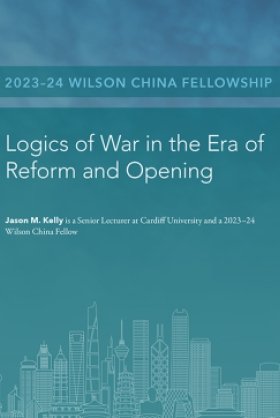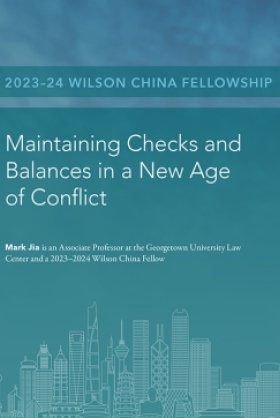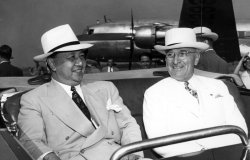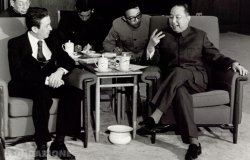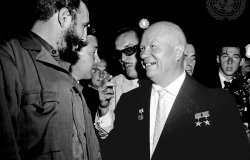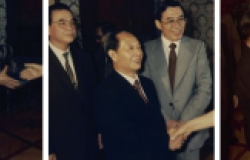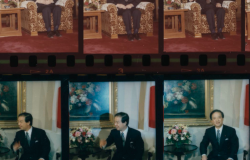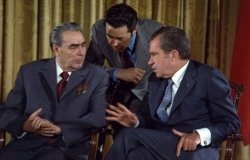Cold War Lessons for Dealing with Russia
CWIHP Public Policy Scholar Sergey Radchenko writes in the National Interest on the situation in Crimea and parallels between the current crisis and the Cold War.

As Russia tightens its grip on the Crimean peninsula amid heightening East-West tensions, observers have drawn evocative parallels between the current crisis and the Cold War.
In some ways such comparisons are misplaced. Clearly, Putin’s Russia is not the Soviet behemoth. It is a regional, not a global player. Economically, culturally, and socially, it is too tightly integrated with the West for it to be easily shut off with another Iron Curtain. Moreover, unlike the Soviet Union, which represented an alternative vision of modernity—Communism—Russia represents no such thing. Putin’s foreign policy is not underpinned by a coherent ideology.
Nevertheless, Soviet decision-making during the Cold War provides useful reference points for understanding Putin’s actions. For twenty-five years scholars have scrutinized declassified Soviet records, translated and published by the Cold War International History Project. They have unwrapped mysteries, deciphered enigmas and solved many of the riddles that had plagued Western perceptions of Soviet policies at the height of the Cold War. With hindsight, we can say see where the West got it wrong.
About the Author

Sergey Radchenko
Wilson E. Schmidt Distinguished Professor at the Johns Hopkins School of Advanced International Studies

Cold War International History Project
The Cold War International History Project supports the full and prompt release of historical materials by governments on all sides of the Cold War. Through an award winning Digital Archive, the Project allows scholars, journalists, students, and the interested public to reassess the Cold War and its many contemporary legacies. It is part of the Wilson Center's History and Public Policy Program. Read more


